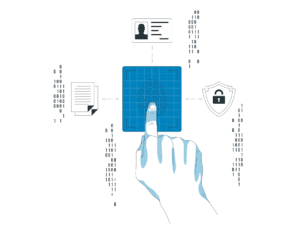
Unlocking the Digital Realm: Understanding Digital Identity
In an increasingly digital world, the concept of identity has transcended its traditional boundaries, morphing into a complex and multifaceted entity known as digital identity. But what exactly is and why is it crucial in today’s interconnected landscape?
Defining Digital Id
At its core, represents the online persona or footprint of an individual, organization, or even a device. It encompasses the unique set of attributes, characteristics, and credentials that define who or what entities are in the digital realm. These attributes can include personal information, biometric data, online behaviors, and authentication credentials.

The Components
1. Personal Information:
This includes basic details such as name, date of birth, address, and contact information. In the digital space, this information forms the foundational layer of one’s id.

2. Biometric Data:
Increasingly, biometric identifiers such as fingerprints, facial recognition, and iris scans are becoming integral components of id verification, offering heightened security and convenience.
3. Authentication Credentials:
Usernames, passwords, PINs, and security tokens serve as keys to access digital services and platforms, verifying one’s identity and granting appropriate permissions.
4. Online Behaviors:
Patterns of online activity, including browsing history, purchasing habits, and social interactions, contribute to shaping an individual’s id. This behavioral data is often leveraged by organizations for personalized services and targeted advertising.
The Importance
In today’s digital ecosystem, where online transactions, communications, and interactions have become ubiquitous, ID plays a pivotal role in enabling secure and seamless experiences. Whether it’s accessing financial services, shopping online, or interacting on social media, a robust digital identity framework is essential for establishing trust, preventing fraud, and safeguarding privacy.
Challenges and Considerations
While offers numerous benefits, it also presents various challenges and considerations, including:
- Privacy Concerns: The collection and storage of personal data raise privacy concerns, necessitating stringent data protection measures and regulatory compliance.
- Security Risks: Cyber threats such as identity theft, phishing attacks, and data breaches underscore the importance of robust security measures to protect digital identities.
- Interoperability: Ensuring seamless interoperability and compatibility across diverse platforms and systems remains a challenge in the realm of digital identity management.
Conclusion
In essence, serves as the cornerstone of the online ecosystem, enabling individuals and entities to navigate the digital landscape with confidence and security. By understanding its components, significance, and associated challenges, stakeholders can work towards building a more resilient and inclusive digital identity infrastructure. As technology continues to evolve, so too will the concept of ID, shaping the future of digital interactions and transactions.
Streamlining Identity Management with IDer
IDer simplifies identity management by providing a seamless and efficient solution that streamlines the authentication process. With its user-friendly interface and advanced security features, IDer empowers individuals and organizations to securely verify their digital identities with ease.